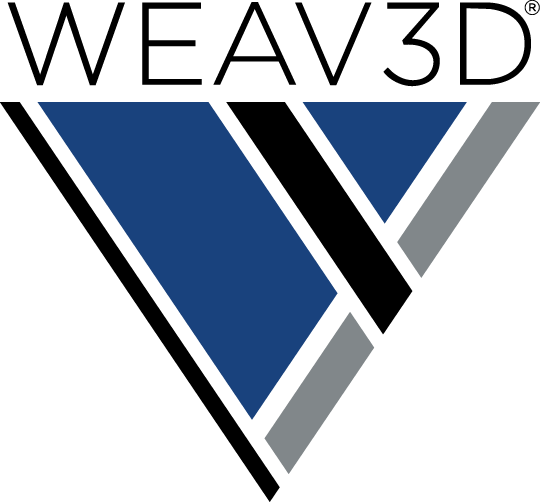Structural Enhancement of Sustainable Materials

The automotive industry has committed to increasing the use of sustainable materials in order to meet long term embodied carbon and circular economy goals. “Sustainable” materials are not clearly defined, but generally include natural fillers and fibers, polymers produced from bio-renewable feedstocks, and post-consumer and post-industrial recycled polymers. While bio-renewable feedstocks are largely equivalent to petroleum-based feedstocks in final polymer performance, natural fibers and recycled materials suffer from reduced and inconsistent mechanical properties compared to their synthetic or virgin alternatives. A significant portion of plastic components in the vehicle today are glass reinforced, presenting a substantial performance barrier to the adoption of natural fibers.
WEAV3D has developed a novel hybrid-material approach, Rebar for Plastics®, that dramatically improves the performance of sustainable materials, through a combination of natural fiber reinforced polypropylene (NFPP) mats and woven composite lattices formed from unidirectional tapes.
